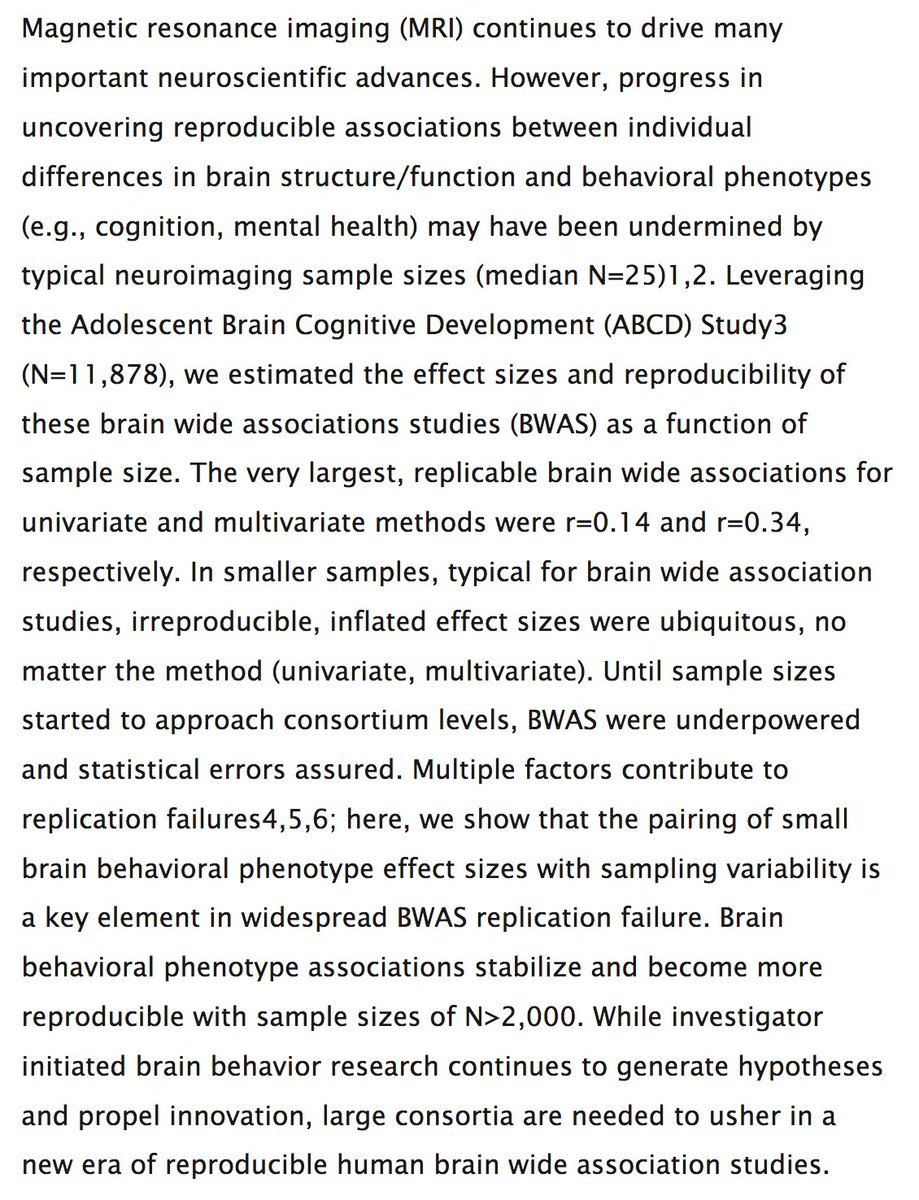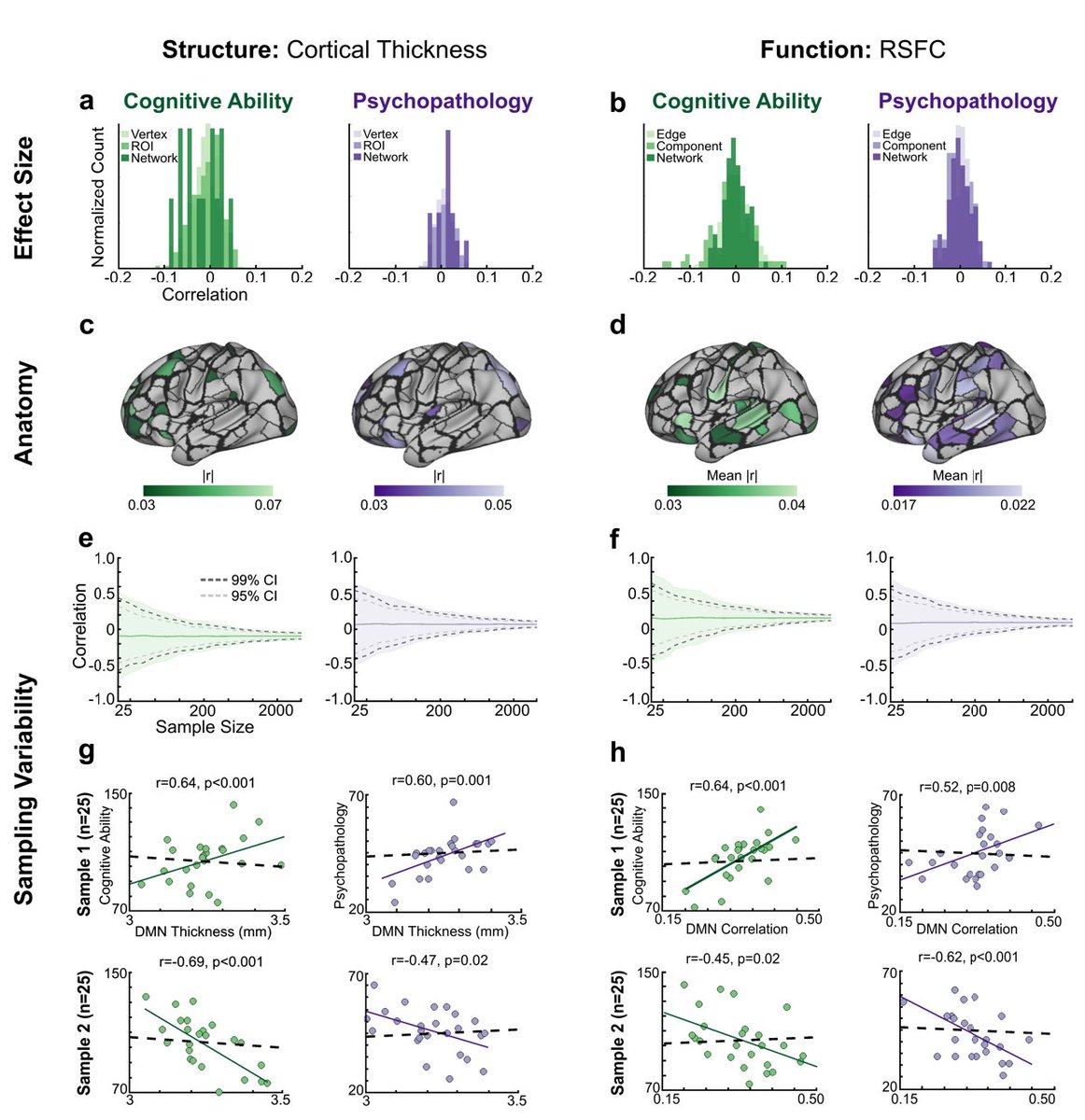
Kathryn Paige Harden: ‘Studies have found genetic variants that correlate with going further in school’ theguardian.com/science/2021/s… - tricky stuff here...
It should be no surprise to anyone that children differ in ways that affect (not determine, but contribute to) how far they go in education.
Some of those differences are genetic in origin, others may be the result of variation in brain development (explaining why even identical twins may differ)
The relevant psychological traits that contribute to variation in educational attainment include intelligence (however you imperfectly measure it) as well as conscientiousness and some others
None of the above should be taken to suggest that social and environmental factors are not also hugely important in determining educational opportunities and success
In many instances such factors play by far the biggest role - comparing between developed and developing countries, for example, or between rich and poor regions within countries
In situations with more social equity of access and support, innate differences (genetic or non-genetic) may explain proportionally more of the variation in outcomes
Molecular genetic studies (led by @kph3k and others) have been able to identify some of the specific genetic variants that correlate with this measure of how far people have gone in education
And you can add up how many of these variants people have to give an aggregate 'polygenic' score, which explains 10-15% of the variance in educational attainment in some large samples
As shown in this paper by Plomin and von Stumm, these polygenic scores correlate across the whole range with performance on UK state exams (GCSEs) ncbi.nlm.nih.gov/pmc/articles/P… 

So it's accurate to say genetic variation 'explains' some of the variance in educational attainment in the UK sample. But note the spread of values for any given polygenic score (shown more clearly here): 

That means such scores have effectively zero predictive value *for individuals*. They show a trend across many people by averaging over all the other variables, but you can't do that for a given person
Which means statements like the following (again from here: theguardian.com/science/2021/s…) are rather misleading, IMO 

Here's one such study: Gene discovery and polygenic prediction from a 1.1-million-person GWAS of educational attainment ncbi.nlm.nih.gov/pmc/articles/P… 

One important finding - the genes implicated are overwhelmingly enriched for ones expressed in the nervous system. This is not a surprise, but a very powerful reality check that results are not just tracking something spurious 

That is, the genetic analyses (GWAS) and polygenic scores are not just tracking social stratification - if they were, there would be no reason why markers just for nervous system genes would be enriched
However, the functions of the implicated genes (for educational attainment or measures of intelligence) do not converge on specific pathways or processes...
The only enrichment is for genes involved in neurodevelopment very broadly. Which suggests what we recognise as "intelligence" very generally tracks how the brain is put together, but nothing more specific
Studies in the last few years have revealed something very... well, revealing! Some of the genetic effects identified in individuals are due to effects *in their parents*
Unless they're adopted, people obviously share genetic variants with their parents. An association between variant X in an individual and trait Y can sometimes be due to the effect of X in the individual's parents, affecting the individual's environment
This kind of "genetic nurture" (or "passive gene-environment correlation") is the case for educational attainment, as shown here: Comparison of Adopted and Nonadopted Individuals Reveals Gene-Environment Interplay for Education in the UK Biobank pubmed.ncbi.nlm.nih.gov/32302253/ 

Polygenic scores were much more predictive of educational attainment in non-adopted vs adopted people. This implies some of the genetic effects of variants carried are mediated by fact that their parents carry them too...
This is confirmed in the study below, which find strong effects on individuals of genetic variants carried by their parents that the individuals do NOT inherit!
The nature of nurture: Effects of parental genotypes pubmed.ncbi.nlm.nih.gov/29371463/ 

You can track the non-transmitted variants and make a polygenic score just for them and it still explains a good chunk of the overall polygenic score variance in the next generation 

All of which confirms something important - family environment (and probably wider social setting) matters a lot for educational attainment
Variants that genetically predispose parents to go further in education (and thus have higher income, access to better schools, etc.) thus positively influence offspring's education through non-genetic means
There is thus an inextricable interplay between genes, environment, and wider culture which loops across generations, with both genetic and social inheritance having a strong influence
As discussed here (with @utafrith): Nature versus nurture: how modern science is rewriting it theconversation.com/nature-versus-…
• • •
Missing some Tweet in this thread? You can try to
force a refresh






